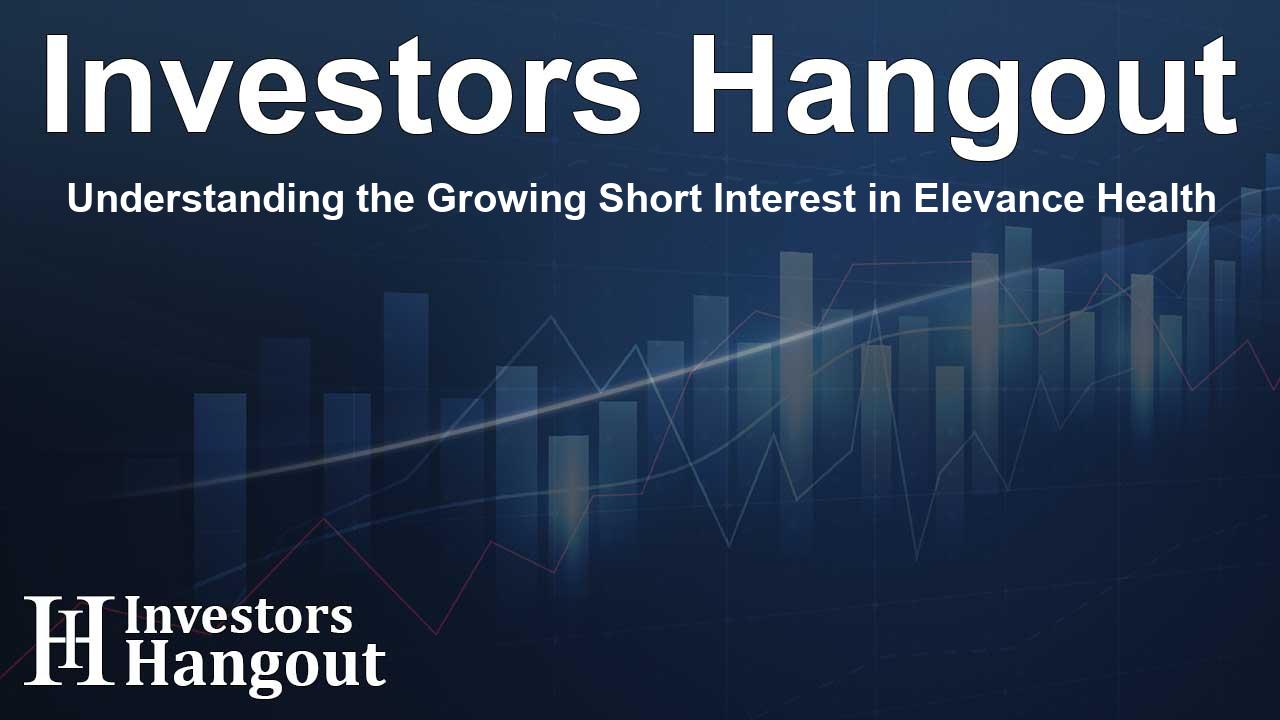Understanding the Growing Short Interest in Elevance Health

Elevance Health's Rising Short Interest
Elevance Health's short percent of float has recently seen an increase, now standing at 11.11% since its last reporting period. This indicates a total of 3.16 million shares sold short, accounting for approximately 1.4% of all shares available for trading. Given the current trading volume, it would take traders roughly 1.28 days on average to cover their short positions, providing an insightful glimpse into market sentiment and potential trading strategies.
Why is Short Interest Important?
Understanding Short Selling
Short interest represents the number of shares that have been sold short but not yet covered or closed out. Short selling involves selling shares that the trader does not own, anticipating that the stock price will decrease. Traders stand to profit from such transactions if the stock's price drops but face losses if it rises. Therefore, tracking short interest is crucial for analyzing investor sentiment toward the stock.
Market Sentiment Indicators
Fluctuations in short interest serve as key indicators of market sentiment. For example, a rise in short interest typically suggests that investors are becoming increasingly bearish about a stock, while a decline could indicate growing bullish sentiment. Understanding these dynamics helps investors formulate their strategies in response to market conditions.
Elevance Health Compared to Its Peers
When assessing Elevance Health's short interest, it is helpful to compare it against its peers. The average short interest within Elevance Health's peer group stands at 7.31%, which means that the company has a lower short interest compared to many of its counterparts in the industry.
Peer Comparison Insights
Peer comparison is a widely adopted method among analysts and investors to benchmark a company's performance. Similarities in industry profiles, size, and financial structures among peers allow for more accurate comparisons. In the case of Elevance Health, maintaining a lower short interest relative to its peers signals that not only is the company performing well, but investors may have a more positive outlook on its future earnings potential.
The Impact of Short Interest on Stock Performance
Interestingly, an increasing short interest could be viewed positively under certain market conditions, as it may indicate that traders are anticipating a potential short squeeze. A short squeeze occurs when a heavily shorted stock's price rises rapidly, forcing short sellers to buy shares to cover their positions, which in turn drives the price even higher. Investors who recognize the potential for a short squeeze may find lucrative opportunities.
Current Market Outlook for Elevance Health
As Elevance Health's short interest increases, traders should remain vigilant and informed. While the rising figures do not necessarily promise a drastic drop in stock prices, the trend does indicate that more traders are betting against the stock. Therefore, it is essential for current and potential investors to closely monitor short interest trends and consider how they align with overall market conditions and the company's performance.
Frequently Asked Questions
What is short interest and why is it important?
Short interest indicates the number of shares sold short but not yet covered. It's significant because it can reflect investor sentiment and market expectations.
How does Elevance Health’s short interest compare to its peers?
Elevance Health has a lower short interest than its peers, which may indicate a more favorable outlook among investors.
What can increasing short interest indicate?
Increasing short interest can indicate that investors are becoming more bearish, but it can also suggest potential for a short squeeze, leading to price increases.
How can investors react to changes in short interest?
Investors should analyze short interest trends and incorporate them into their trading strategies, considering both risks and opportunities.
What does a short squeeze entail?
A short squeeze occurs when a stock's price spikes, forcing short sellers to buy shares to cover their positions, which can further elevate the stock's price.
About The Author
Contact Olivia Taylor privately here. Or send an email with ATTN: Olivia Taylor as the subject to contact@investorshangout.com.
About Investors Hangout
Investors Hangout is a leading online stock forum for financial discussion and learning, offering a wide range of free tools and resources. It draws in traders of all levels, who exchange market knowledge, investigate trading tactics, and keep an eye on industry developments in real time. Featuring financial articles, stock message boards, quotes, charts, company profiles, and live news updates. Through cooperative learning and a wealth of informational resources, it helps users from novices creating their first portfolios to experts honing their techniques. Join Investors Hangout today: https://investorshangout.com/
The content of this article is based on factual, publicly available information and does not represent legal, financial, or investment advice. Investors Hangout does not offer financial advice, and the author is not a licensed financial advisor. Consult a qualified advisor before making any financial or investment decisions based on this article. This article should not be considered advice to purchase, sell, or hold any securities or other investments. If any of the material provided here is inaccurate, please contact us for corrections.
